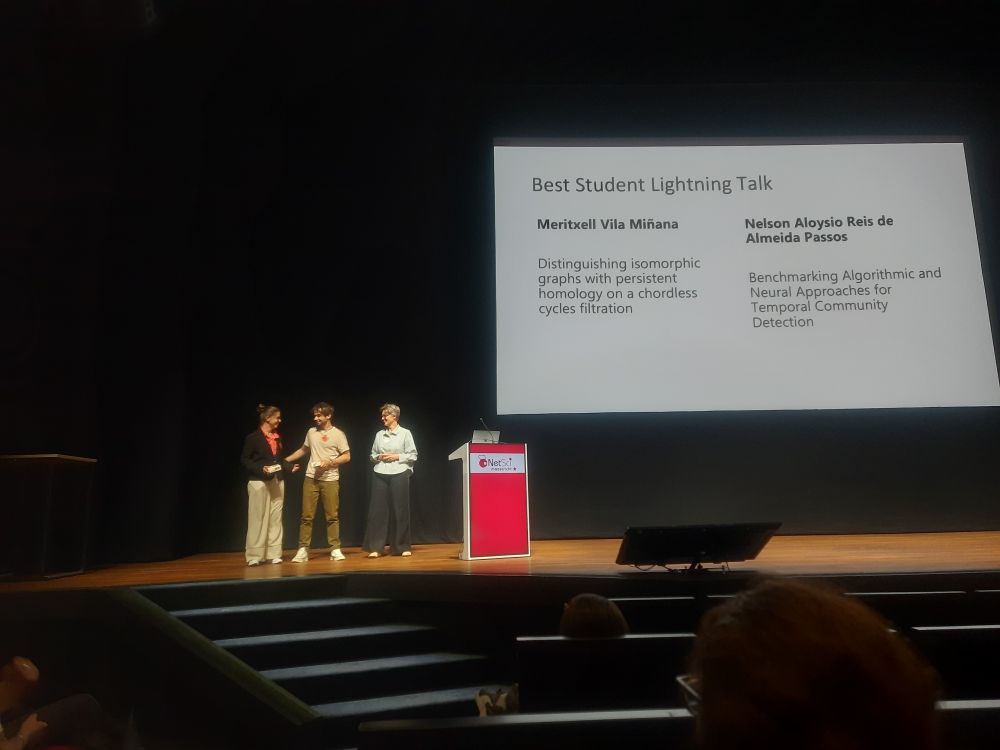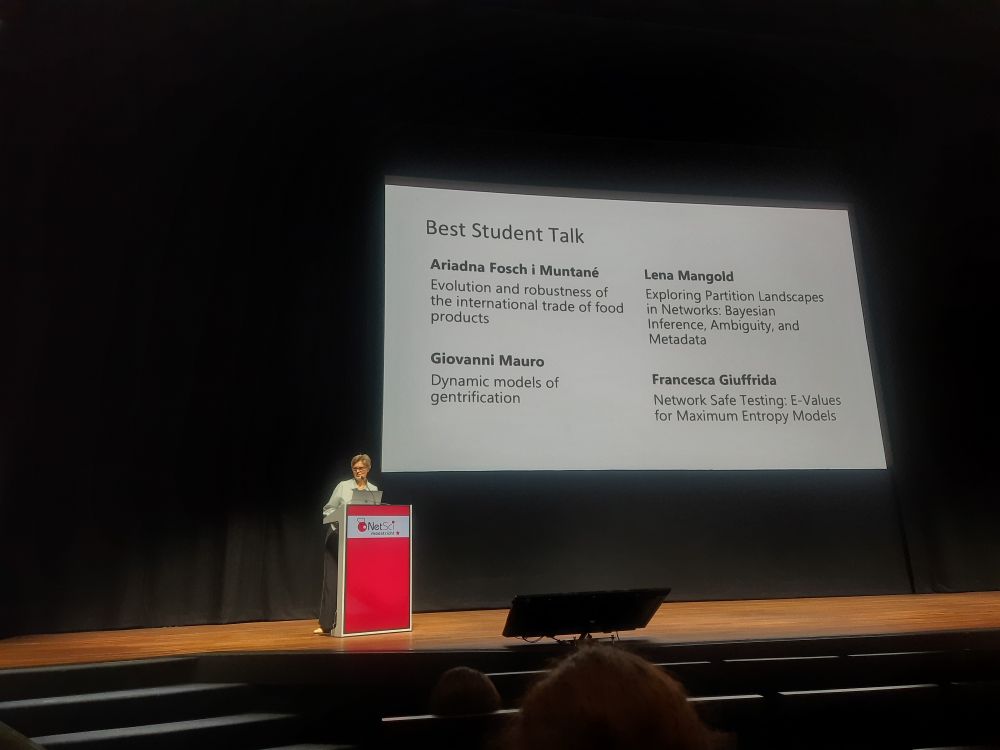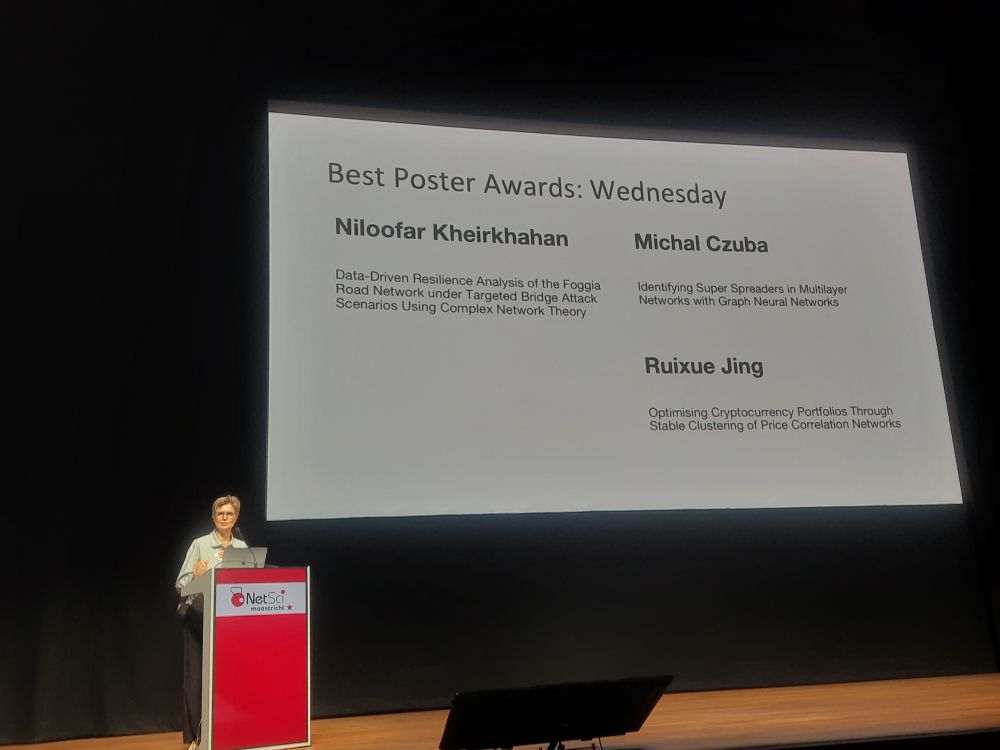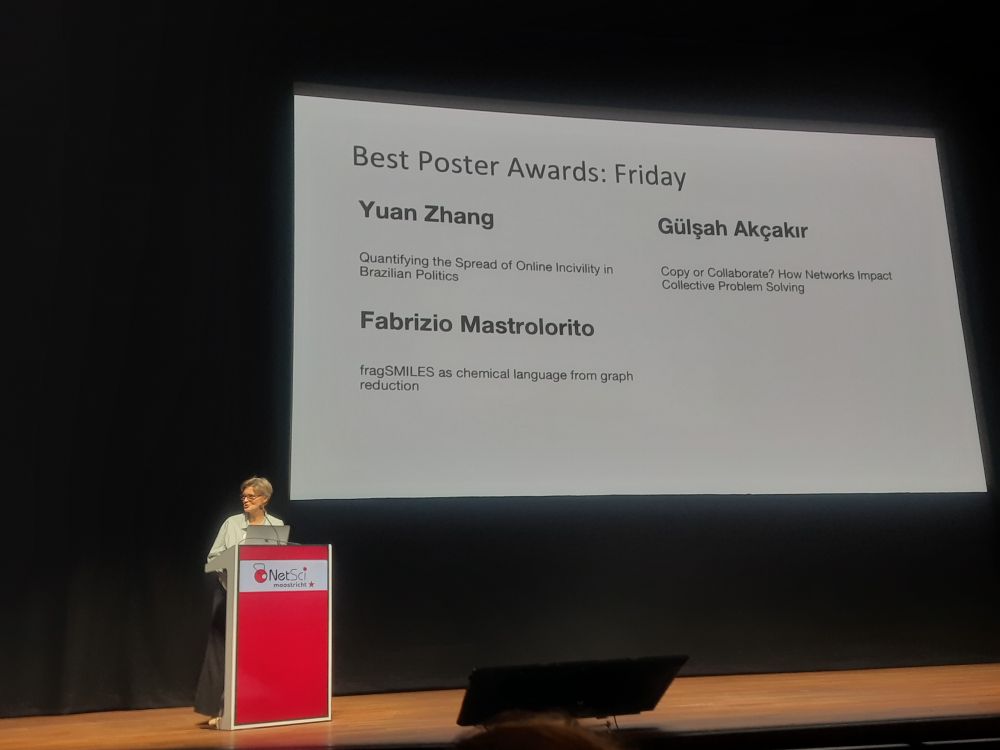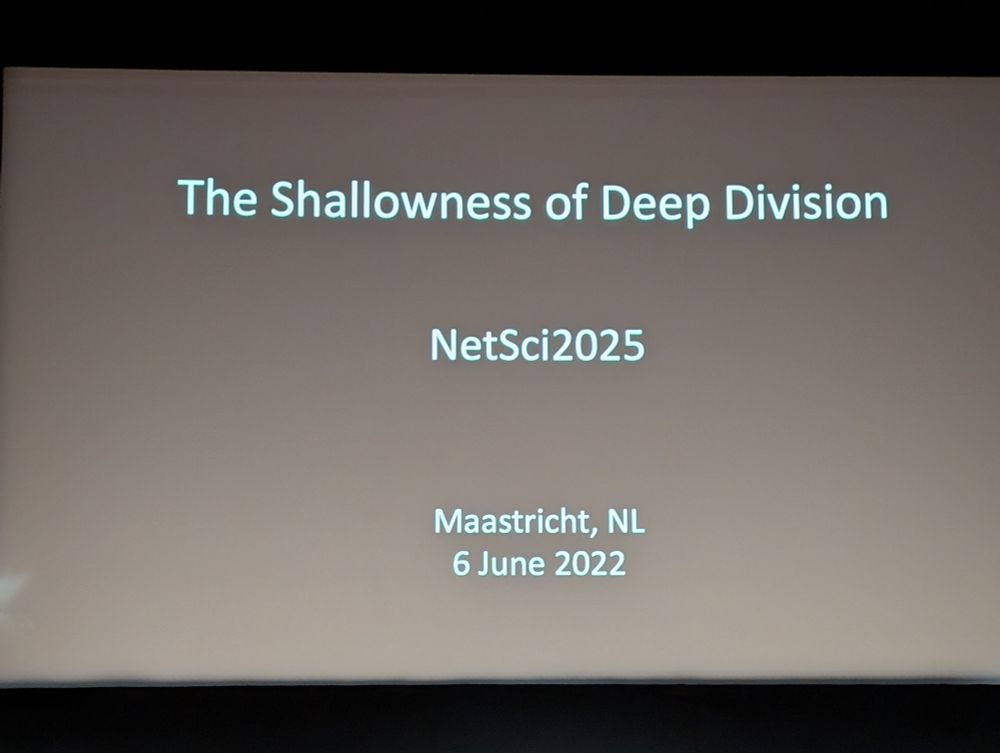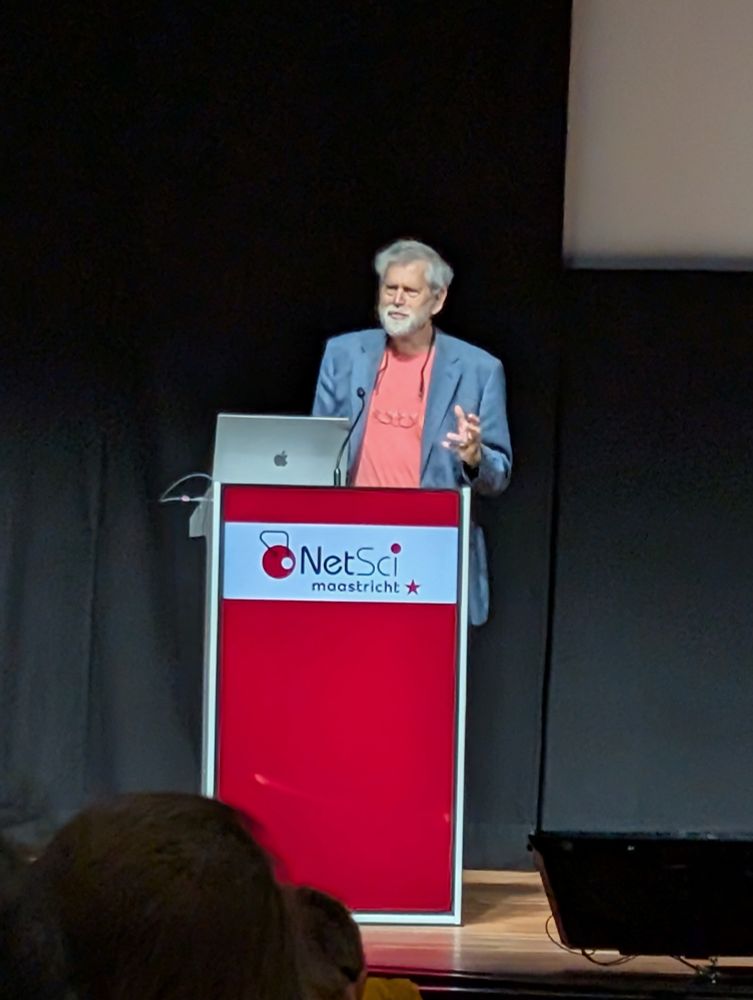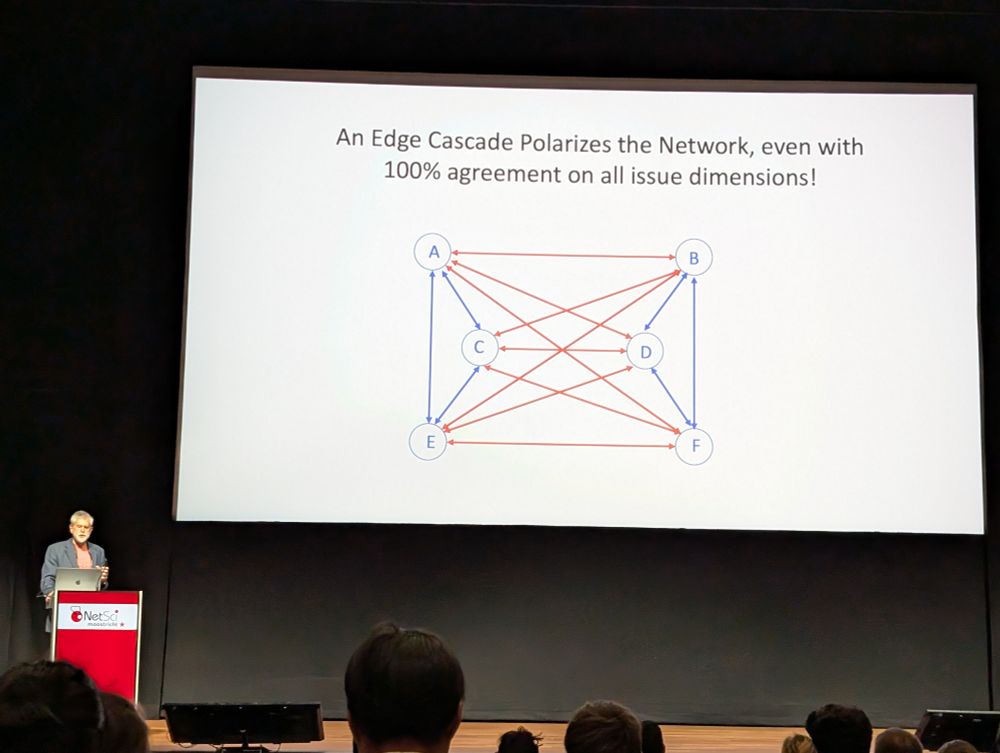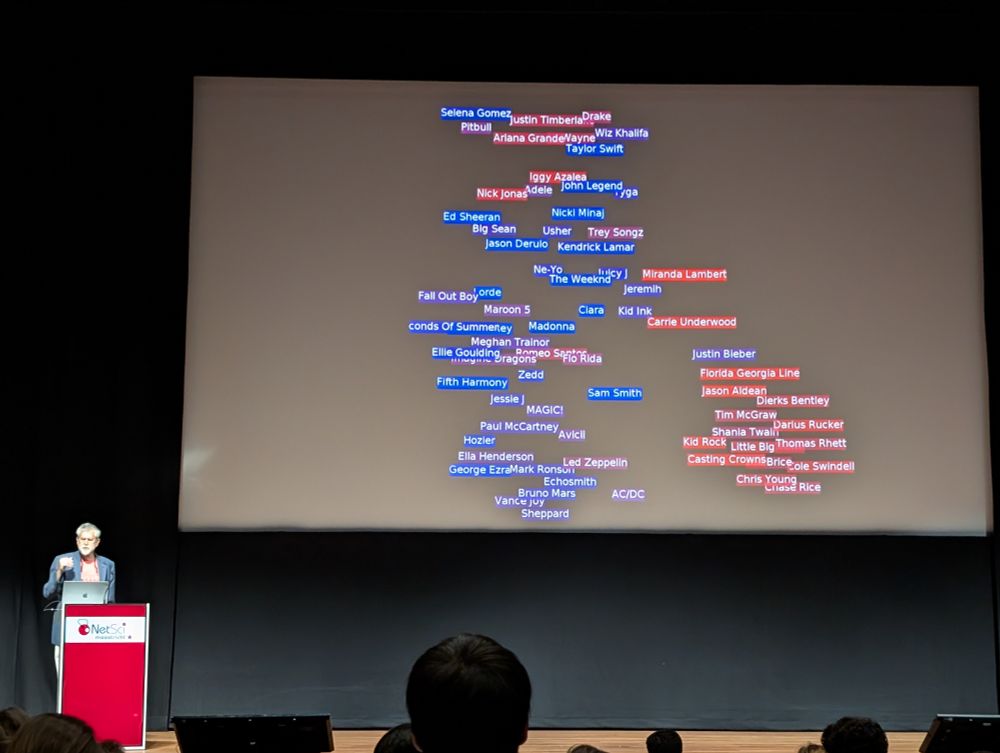🎉 So excited to host the next CompleNet conference 🎉
Don’t miss it 👇 See you next May in Zaragoza!!!
15.09.2025 20:02 — 👍 15 🔁 5 💬 0 📌 0
This paper is now published on Network Science! 🎊
Open-access published version: doi.org/10.1017/nws....
(and the dataset is freely available!)
Menéame.net user interaction dataset: doi.org/10.5281/zeno...
@javiergbe.bsky.social
@abovet.bsky.social
02.09.2025 17:25 — 👍 12 🔁 5 💬 0 📌 0
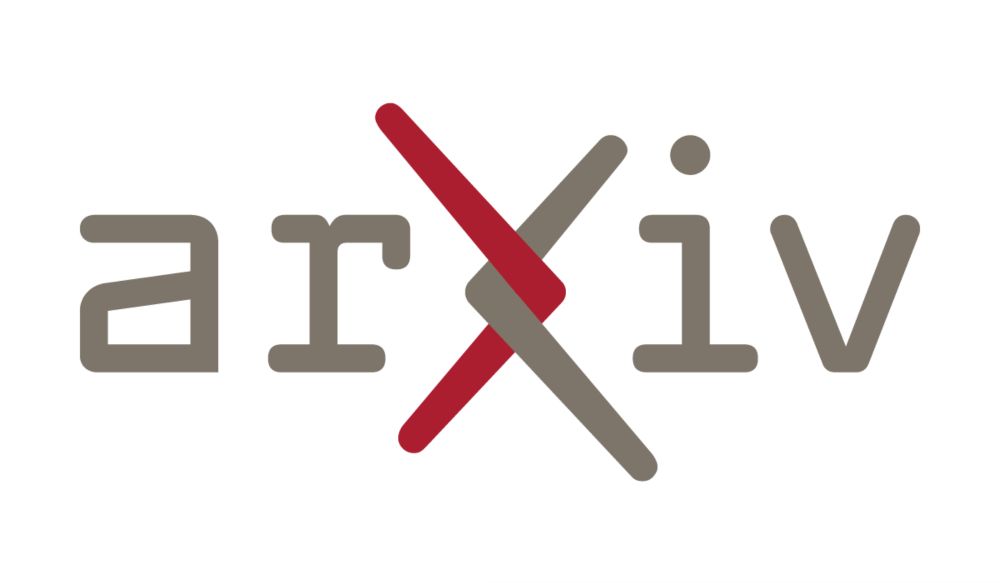
Will anyone review this paper? Screening, sorting, and the feedback cycles that imperil peer review
Scholarly publishing relies on peer review to identify the best science. Yet finding willing and qualified reviewers to evaluate manuscripts has become an increasingly challenging task, possibly even ...
1. Kevin Gross and I just posted a new science-of-science preprint.
This one explores the looming peer review crisis. As many of you know, it's becoming significantly more difficult for journal editors to find scholars willing to serve as peer reviewers for submitted manuscripts.
16.07.2025 03:13 — 👍 548 🔁 217 💬 22 📌 20
Radware Bot Manager Captcha
To ensure we keep this website safe, please can you confirm you are a human by ticking the box below.
Excited to share this new paper in JPhys Complexity from @abovet.bsky.social @lambiotte.bsky.social @nicopedre.bsky.social 'Community detection on directed networks with missing edges'
iopscience.iop.org/article/10.1...
08.07.2025 09:35 — 👍 2 🔁 2 💬 0 📌 0
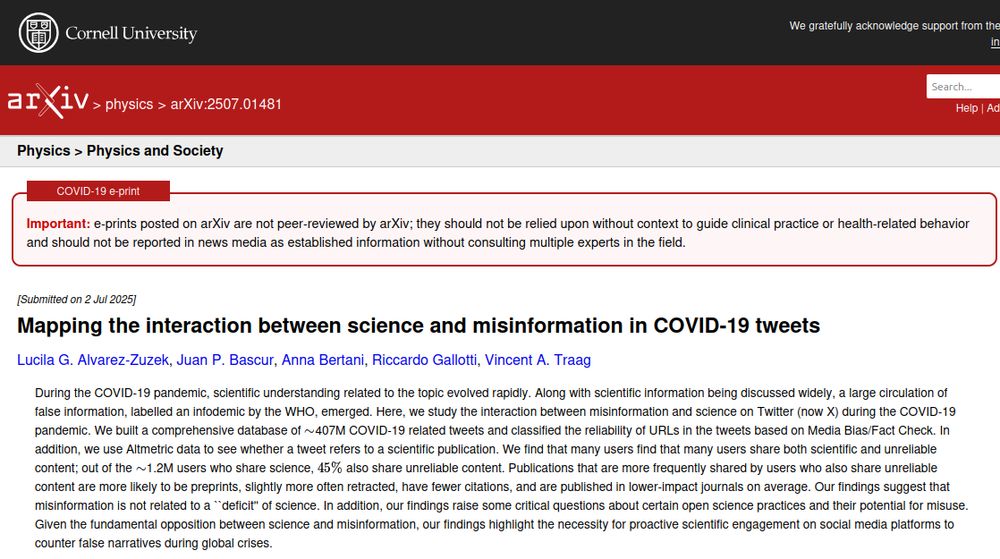
Mapping the interaction between science and misinformation in COVID-19 tweets.
Publication from @luzuzek.bsky.social, Juan Pablo Bascur, @annabertani.bsky.social, @ricgallotti.bsky.social. This project is supported by European Media and Information Fund.
Abstract: During the COVID-19 pandemic, scientific understanding related to the topic evolved rapidly. Along with scientific information being discussed widely, a large circulation of false information, labelled an infodemic by the WHO, emerged. Here, we study the interaction between misinformation and science on Twitter (now X) during the COVID-19 pandemic. We built a comprehensive database of 407M COVID-19 related tweets and classified the reliability of URLs in the tweets based on Media Bias/Fact Check. In addition, we use Altmetric data to see whether a tweet refers to a scientific publication. We find that many users find that many users share both scientific and unreliable content; out of the 1.2M users who share science, also share unreliable content. Publications that are more frequently shared by users who also share unreliable content are more likely to be preprints, slightly more often retracted, have fewer citations, and are published in lower-impact journals on average. Our findings suggest that misinformation is not related to a ``deficit'' of science. In addition, our findings raise some critical questions about certain open science practices and their potential for misuse. Given the fundamental opposition between science and misinformation, our findings highlight the necessity for proactive scientific engagement on social media platforms to counter false narratives during global crises.
New preprint! 🚨
We study the interaction between misinformation and science on Twitter during COVID-19 based on ~407M tweets. Both science and misinformation featured prominently during the pandemic, but the interaction between the two has not been studied on this scale before.
🧵 (1/10)
04.07.2025 10:37 — 👍 102 🔁 41 💬 4 📌 5
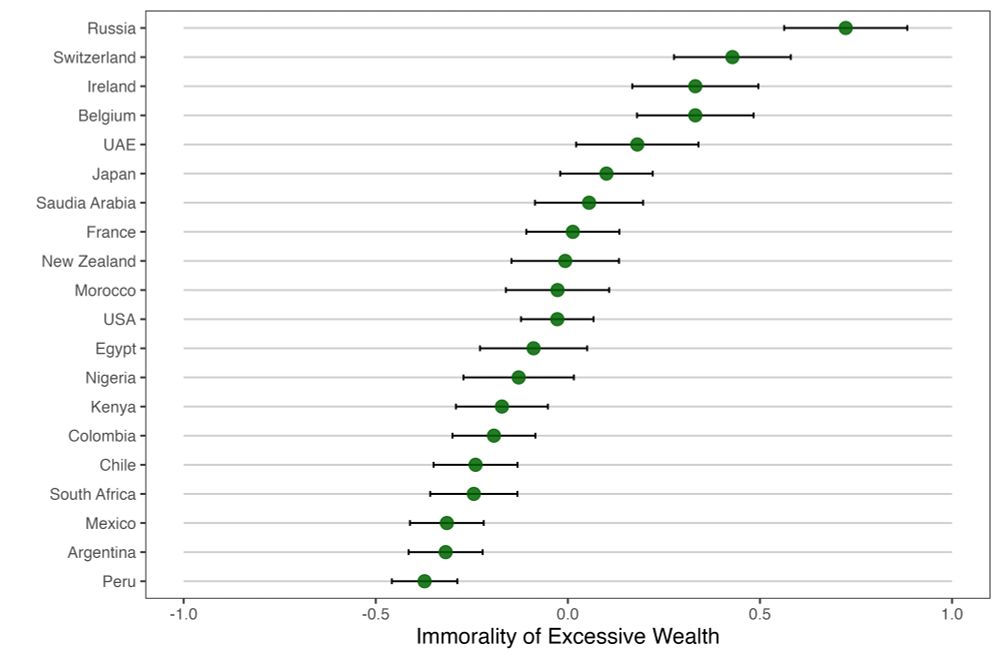
The perceived immorality of too much wealth in 20 nations. Scores are standardized, and whiskers represent the 95% confidence interval.
Most people don’t find excessive wealth immoral when considered separately from economic inequality; however, people in countries with high GDP and high levels of inequality find being too rich more morally wrong than being of average wealth. In PNAS Nexus: academic.oup.com/pnasnexus/ar...
30.06.2025 16:10 — 👍 1 🔁 2 💬 0 📌 0
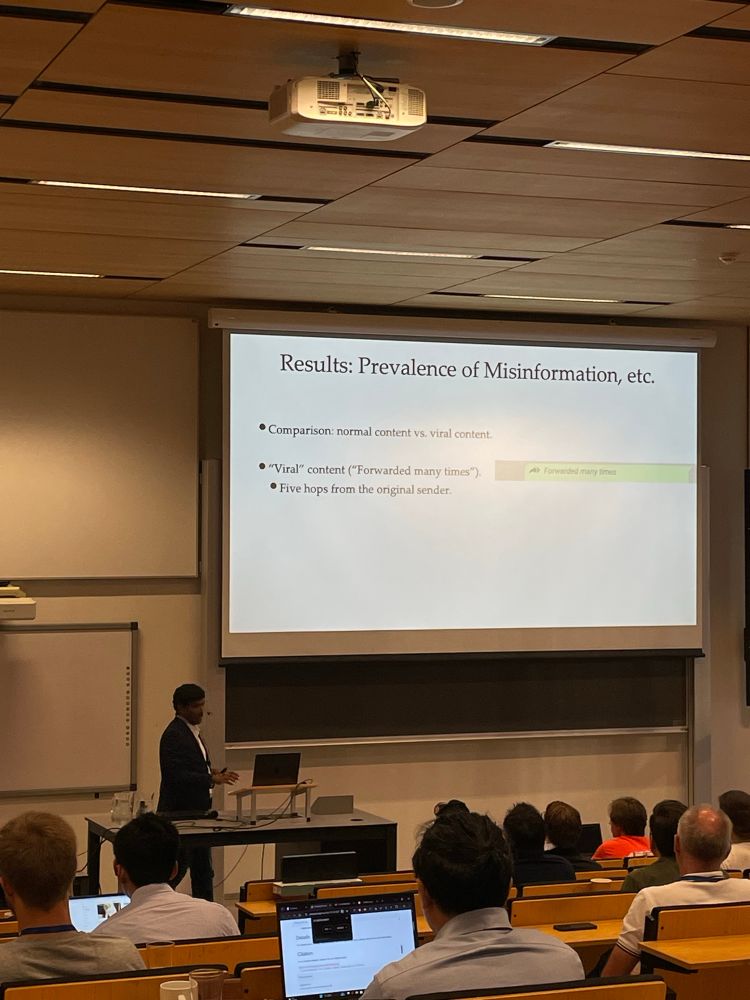
Adamic-Glance Awardee Keynote: @gvrkiran.bsky.social on misinformation on whatsapp through the lens of a large data donation program #icwsm
26.06.2025 07:13 — 👍 17 🔁 5 💬 0 📌 0
Bootstrapping Social Networks: Lessons from Bluesky Starter Packs
| Proceedings of the International AAAI Conference on Web and Social Media
Our work on Bluesky: doi.org/10.1609/icws...
Joint work with
@bibo7086.bsky.social
@harnen.bsky.social
@garethtyson.bsky.social
@asonur.bsky.social
@ignactro.bsky.social
@baronca.bsky.social
21.06.2025 11:31 — 👍 7 🔁 3 💬 0 📌 0
Excited for my first #ICWSM!
I'll be showing our work on the Twitter to Bluesky academic migration this afternoon at the nextgensocial-workshop.github.io (paper: arxiv.org/abs/2505.24801)
@yuan1227.bsky.social will show our paper on incivility on Thursday: ojs.aaai.org/index.php/IC...
23.06.2025 09:26 — 👍 8 🔁 1 💬 0 📌 0
I'll be at #ICWSM 2025 next week to present our paper about Bluesky Starter Packs.
For the occasion, I've created a Starter Pack with all the organizers, speakers, and authors of this year I could find on Bluesky!
Link: go.bsky.app/GDkQ3y7
Let me know if I missed anyone!
21.06.2025 11:31 — 👍 30 🔁 13 💬 6 📌 2
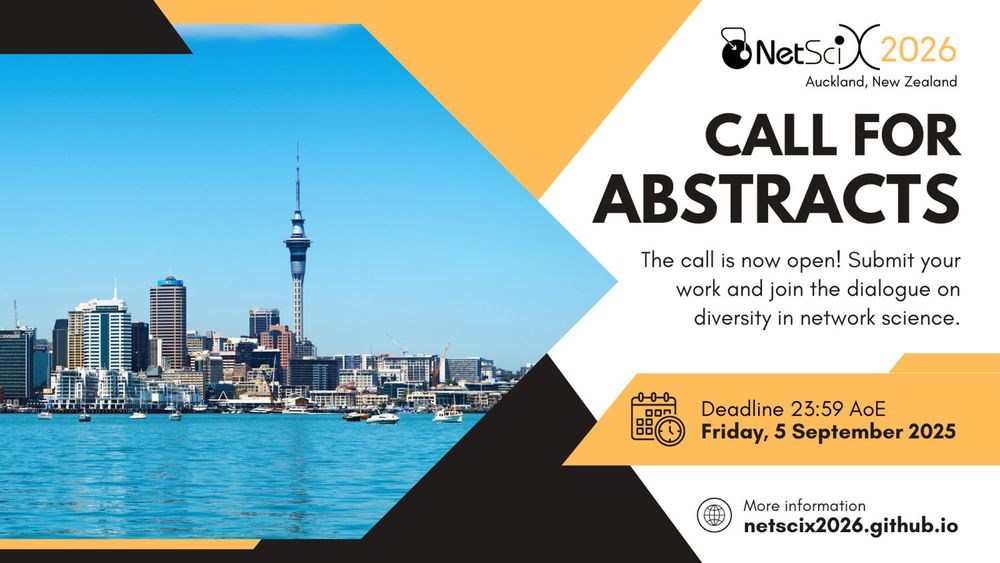
Promotional graphic for NetSciX 2026 in Auckland, New Zealand. The image features a cityscape of Auckland with the Sky Tower prominently visible against a clear blue sky and harbor. On the right side, bold text reads "CALL FOR ABSTRACTS" with a note encouraging submissions on diversity in network science. The deadline is listed as "Friday, 5 September 2025 at 23:59 AoE." The website for more information is netscix2026.github.io.
📢 The NetSci-X 2026 Call for Abstracts is now open!
Submit your work and join us in #Auckland to explore diversity in network science.
📅 Deadline: 5 September 2025, 23:59 AoE
🌐 More info: netscix2026.github.io
@mluczak.bsky.social Michael Small @droneale.bsky.social Daniela Paolotti
11.06.2025 06:01 — 👍 13 🔁 13 💬 0 📌 3
@yasasgari.bsky.social @dorianquelle.bsky.social @yuan1227.bsky.social @SamuelKoovely
10.06.2025 18:03 — 👍 2 🔁 0 💬 0 📌 0
It has been a pleasure hosting the #NetSci2025 conference in Maastricht! Our thanks to all participants for their energy, ideas, talks, posters, discussions, and laughter!
07.06.2025 16:06 — 👍 13 🔁 2 💬 0 📌 0
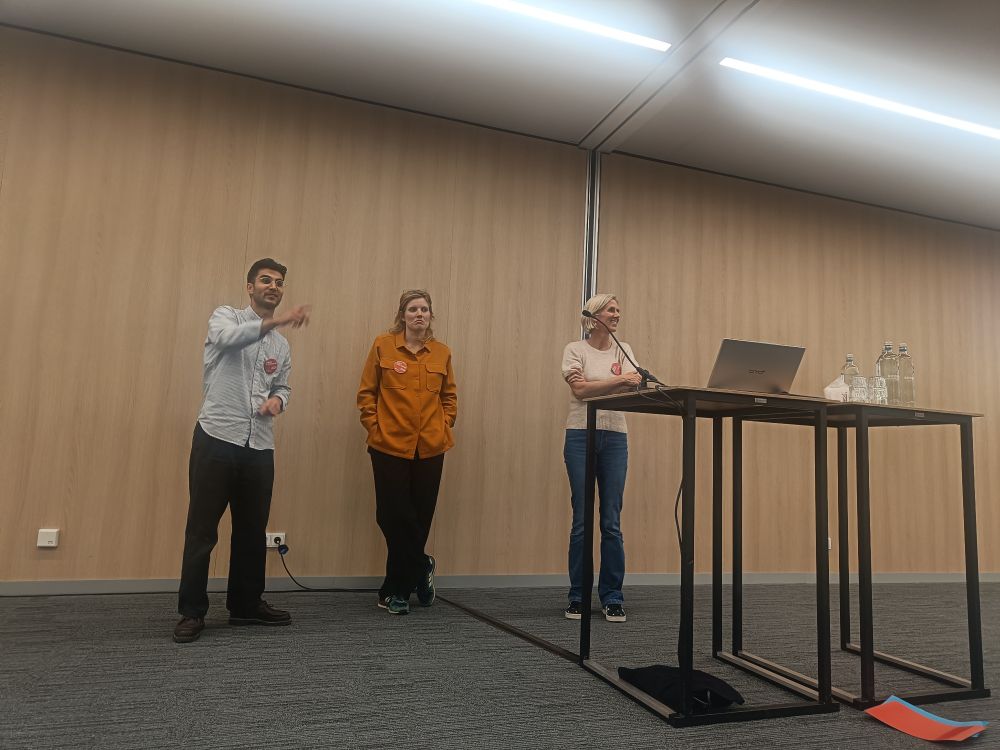
Omid V. Ebrahimi, Riet van Bork, Anne Roefs at the Netsci focus session on network psychometrics
This turned out great, thanks to three amazing speakers and an engaged audience. Great job everyone!
Let's maybe turn this into a regular NetSci satellite?
@netsciconf.bsky.social
06.06.2025 14:23 — 👍 6 🔁 2 💬 0 📌 0
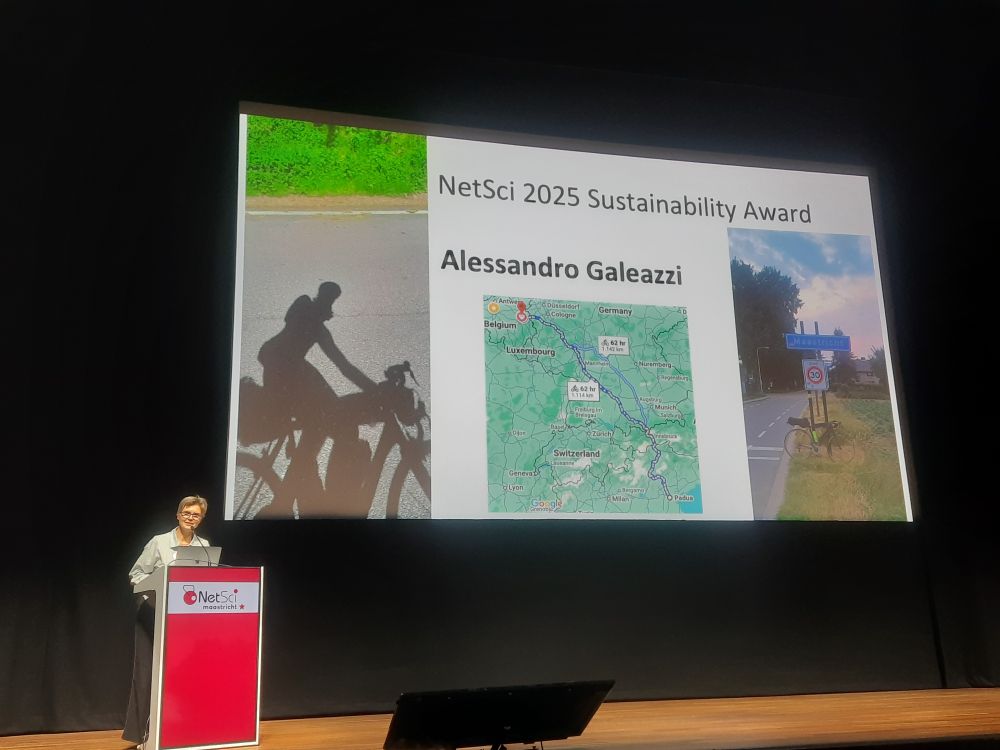
And the sustainability award for cycling to Maastricht from Venice!
09.06.2025 07:46 — 👍 2 🔁 0 💬 0 📌 0
🥰
06.06.2025 16:57 — 👍 6 🔁 1 💬 0 📌 0
Now that #NetSci25 is over and the adrenaline has settled, all I can say is: thank you! It's always a blast - and winning an unexpected prize makes it even more special.
I hope e-values found a place in (some of) your hearts. Stay tuned, the paper is coming soon!
07.06.2025 21:01 — 👍 5 🔁 1 💬 2 📌 0
Thanks to everyone who helped us put this whole event together. Thanks to everyone who joined us this week. Seeing so many happy network scientists was truly wonderful!
06.06.2025 16:26 — 👍 13 🔁 2 💬 1 📌 0
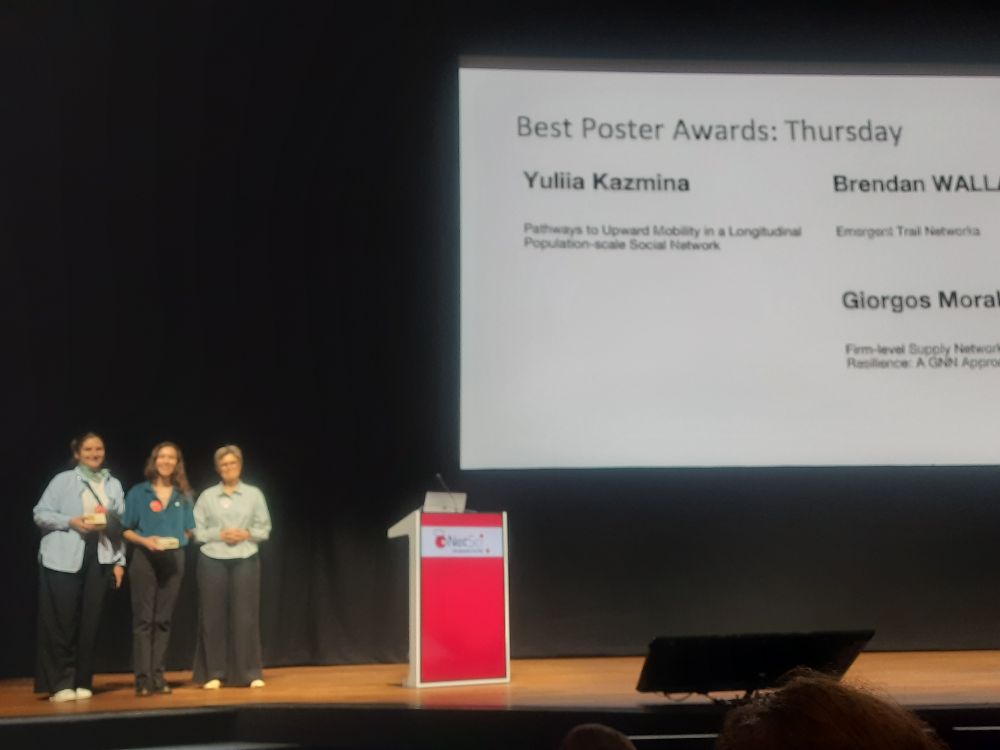
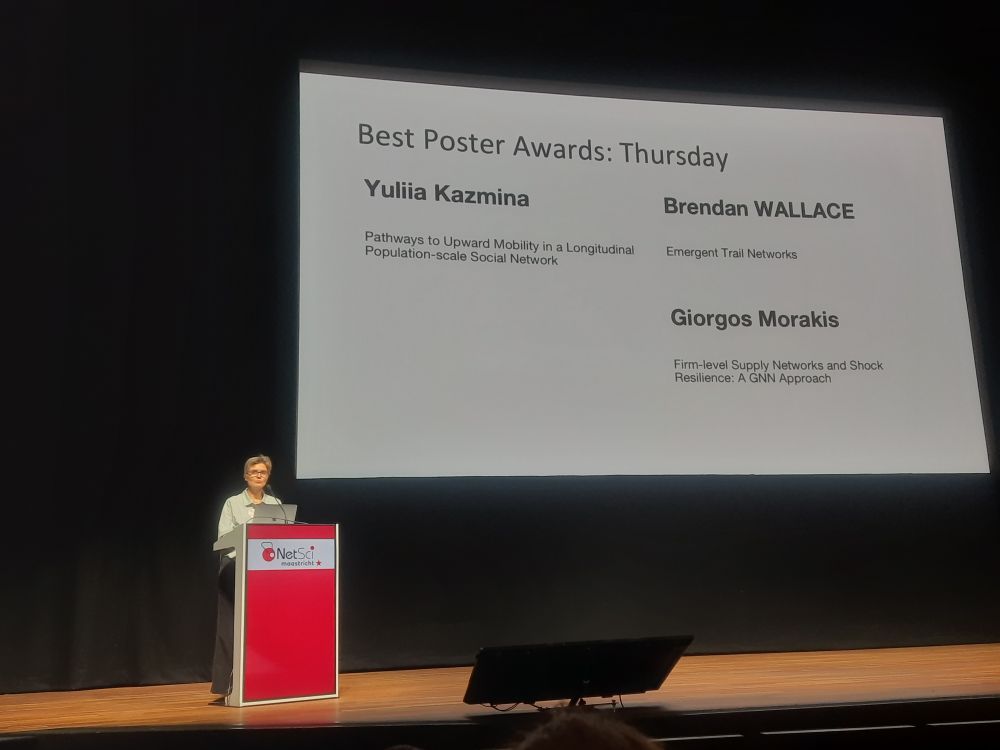 06.06.2025 14:53 — 👍 2 🔁 1 💬 1 📌 0
06.06.2025 14:53 — 👍 2 🔁 1 💬 1 📌 0
@netsciconf.bsky.social
06.06.2025 14:50 — 👍 0 🔁 0 💬 1 📌 0
Always happy to chat!
I believe my excellent collaborators @skojaku.bsky.social, @hirokisayama.bsky.social, and Renaud are all happy to discuss more!!
05.06.2025 21:59 — 👍 7 🔁 3 💬 0 📌 1
What if edge weights are MATRICES? 🤯 We showed matrix-weights are a natural represention of multidimensional interactions (eg your climate views influencing my economic beliefs), generalizing the notion of communities & structural balance. Find us to discuss more. #NetSci2025
06.06.2025 07:01 — 👍 9 🔁 5 💬 0 📌 0
Benn Jordan / The Flashbulb
••Recording artist | YouTuber | Researcher••
https://linktr.ee/BennJordan
Analyst of collective movement and social networks of living dinosaurs. Discoverer of multilevel societies. Watcher of fishers and dolphins. Modeller of emergent phenomena. Eccellenza Prof @ Uni Zurich and A/Prof @ Australian National Uni. ERC grantee
A career network featuring science jobs in academia and industry.
Visit our platform at www.science.hr
Digitalisierungsinitiative der Zürcher Hochschulen | Forschung, Innovation und Bildung | www.dizh.ch
Publisher at IOP Publishing (Classical and Quantum Gravity, Journal of Physics B: Atomic, Molecular and Optical Physics, Journal of Physics: Complexity)
PhD candidate at MPI MiS, Lattice and SciencesPo médialab | Computational Social Science, Narratives, NLP, Complex Networks | https://pournaki.com
Assistant Professor in Computer Science at Lancaster University
PhD student in Computational Social Science at @itu.dk @nerdsitu.bsky.social | Visiting Scholar at @umich.edu and @ceu-dnds.bsky.social
I study algorithms/learning/data applied to democracy/markets/society. Asst. professor at Cornell Tech. https://gargnikhil.com/. Helping building personalized Bluesky research feed: https://bsky.app/profile/paper-feed.bsky.social/feed/preprintdigest
Computer Science PhD @ TU Darmstadt by day, Generative Art during free time.
https://bsky.leobalduf.com
Communication scholar at U of Zurich, Chair of ICA’s PolComm Division, Comparative Research, loses in chess against his 10 year old
Assistant Professor in Computational Social Science at University of Amsterdam
Studying the intersection of AI, social media, and politics.
Polarization, misinformation, radicalization, digital platforms, social complexity.
Assistant Professor at TU Delft, Associated Researcher at Max Planck Institute for Informatics, and core member of iDRAMALab.
https://zsavvas.github.io/
Prof of Computational Social Science. SOT/TU Munich. Critical Data Studies, AI & Democracy, #CSS @ICWSM
Assistant prof. of information science at Drexel CCI.
computational social science, NLP for social good, narratives, stigma, #NLProc #NLP #NLP4SG
Previously at UIUC, Spotify.
she/her. shadirezapour.com

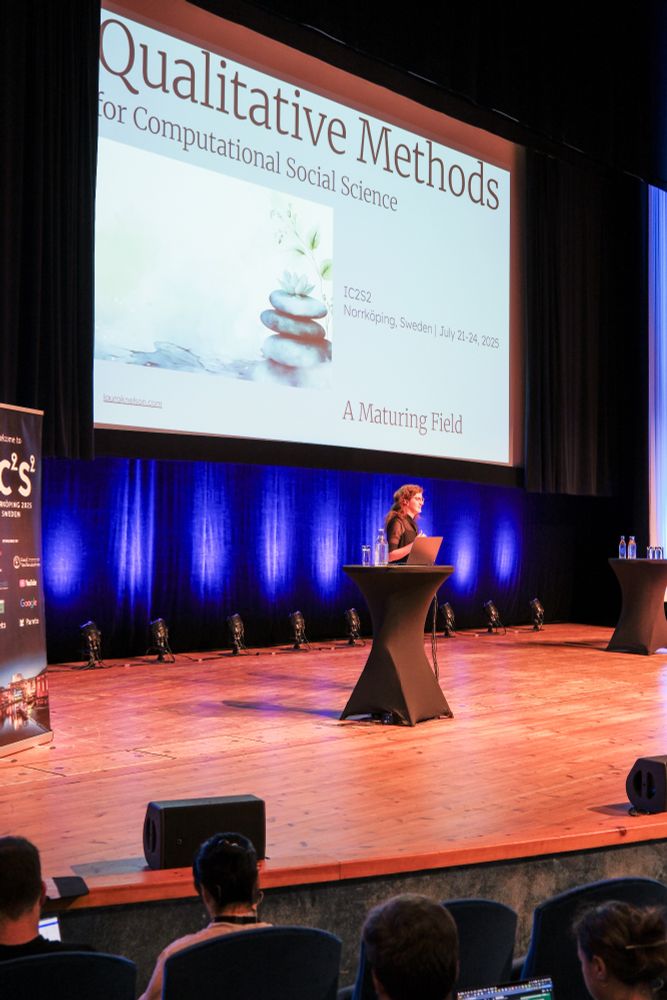
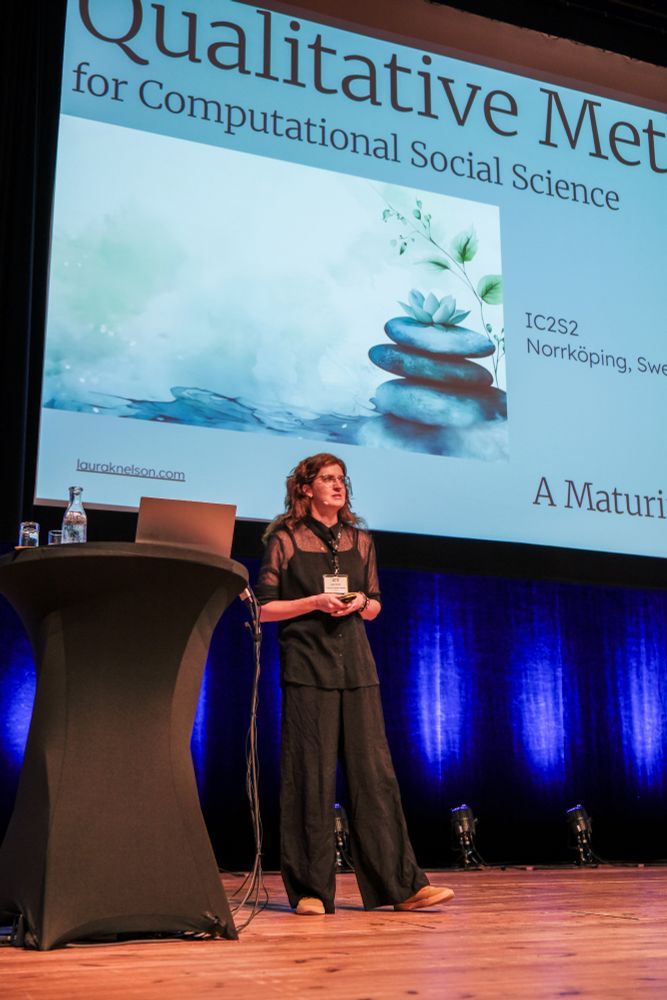
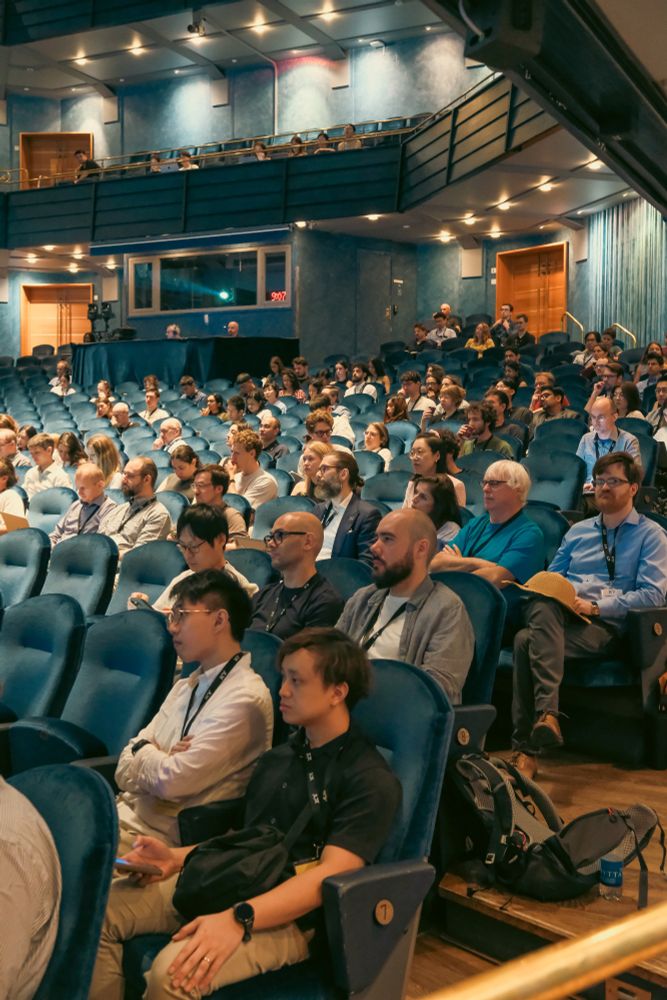
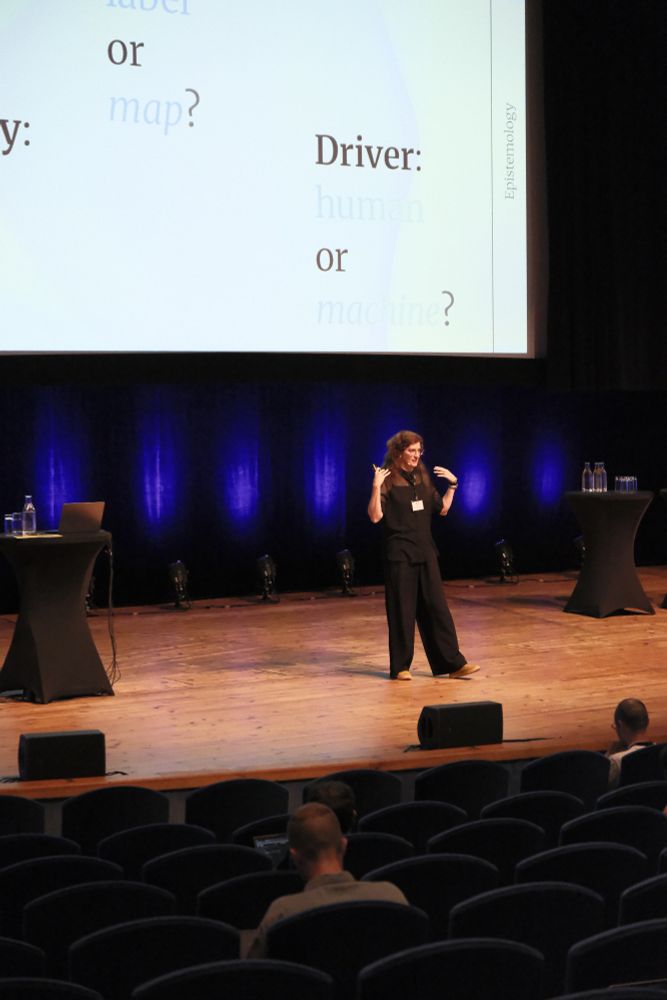


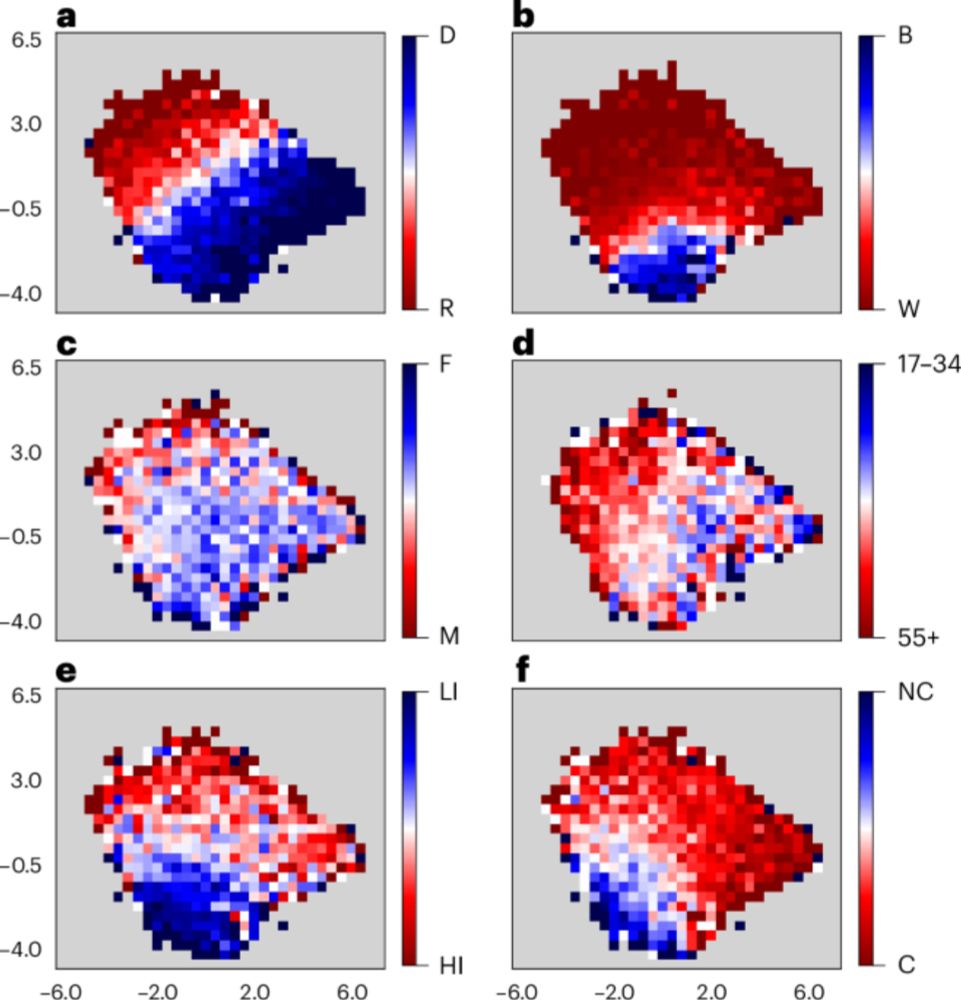


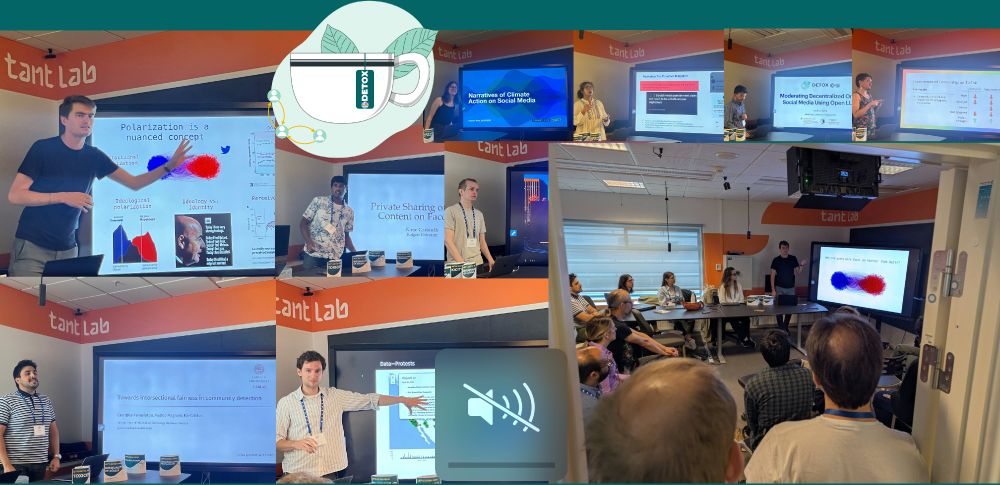
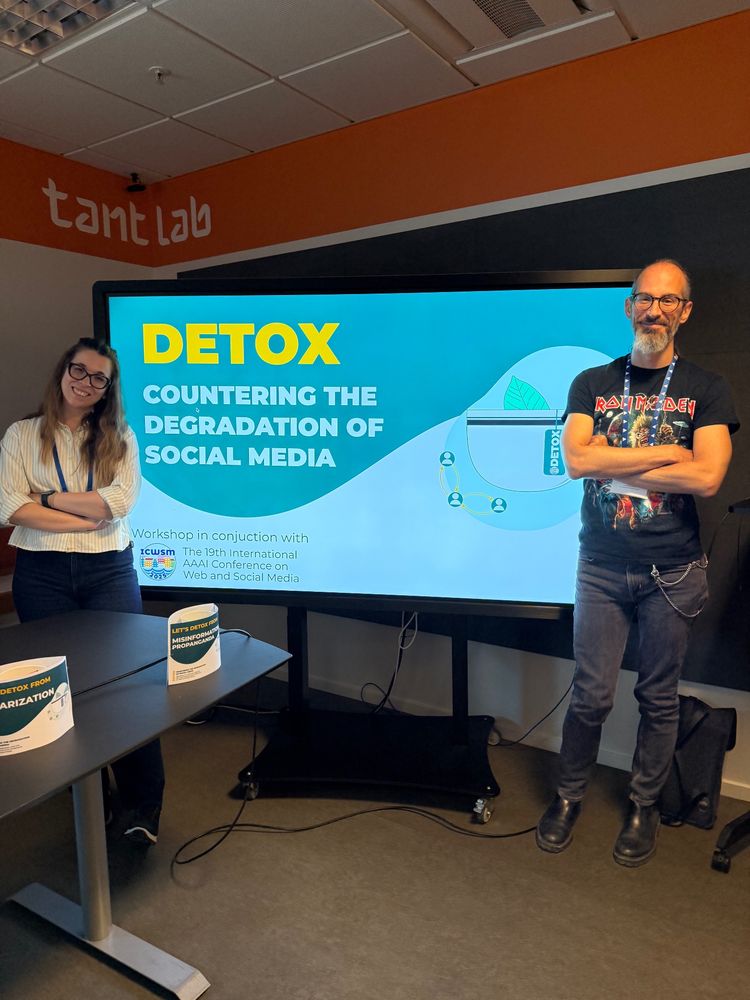
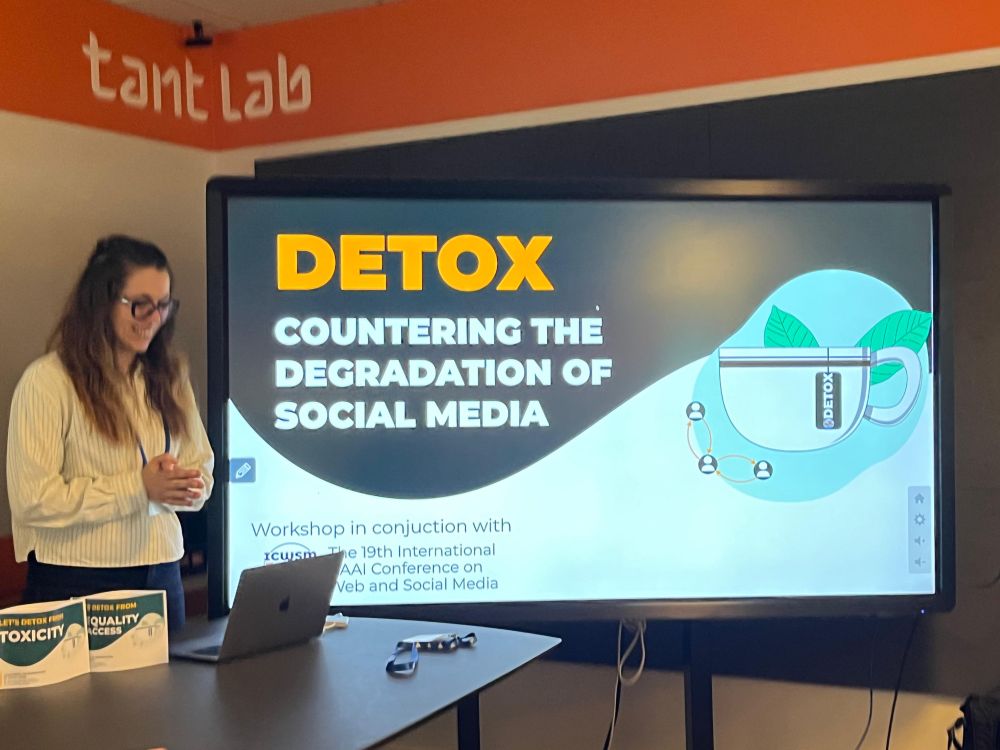

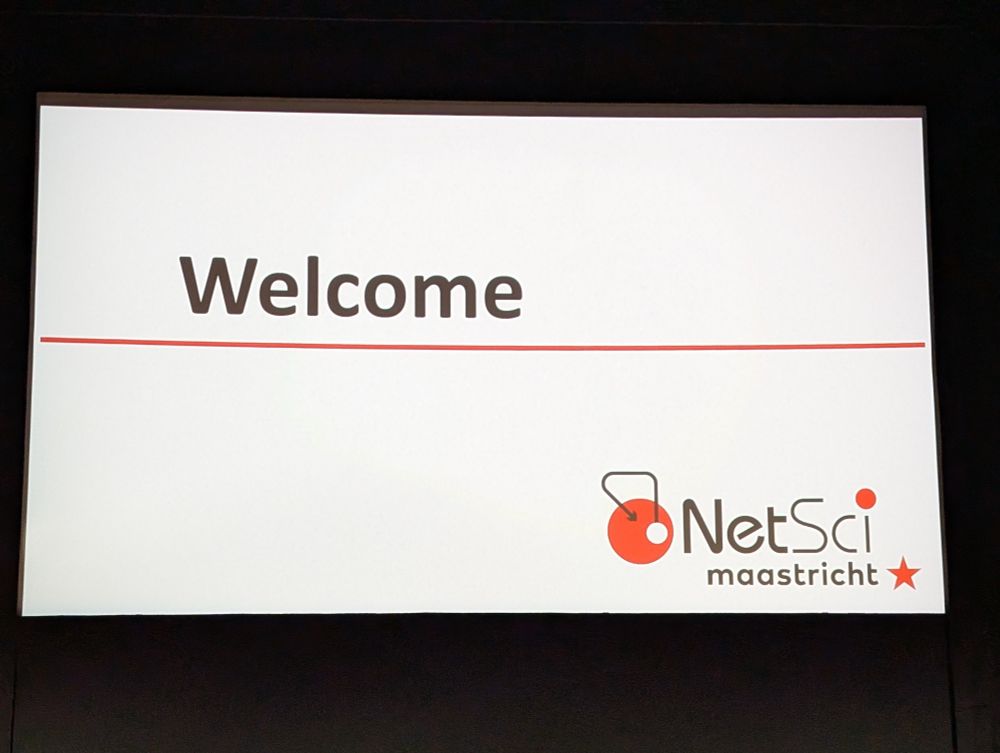
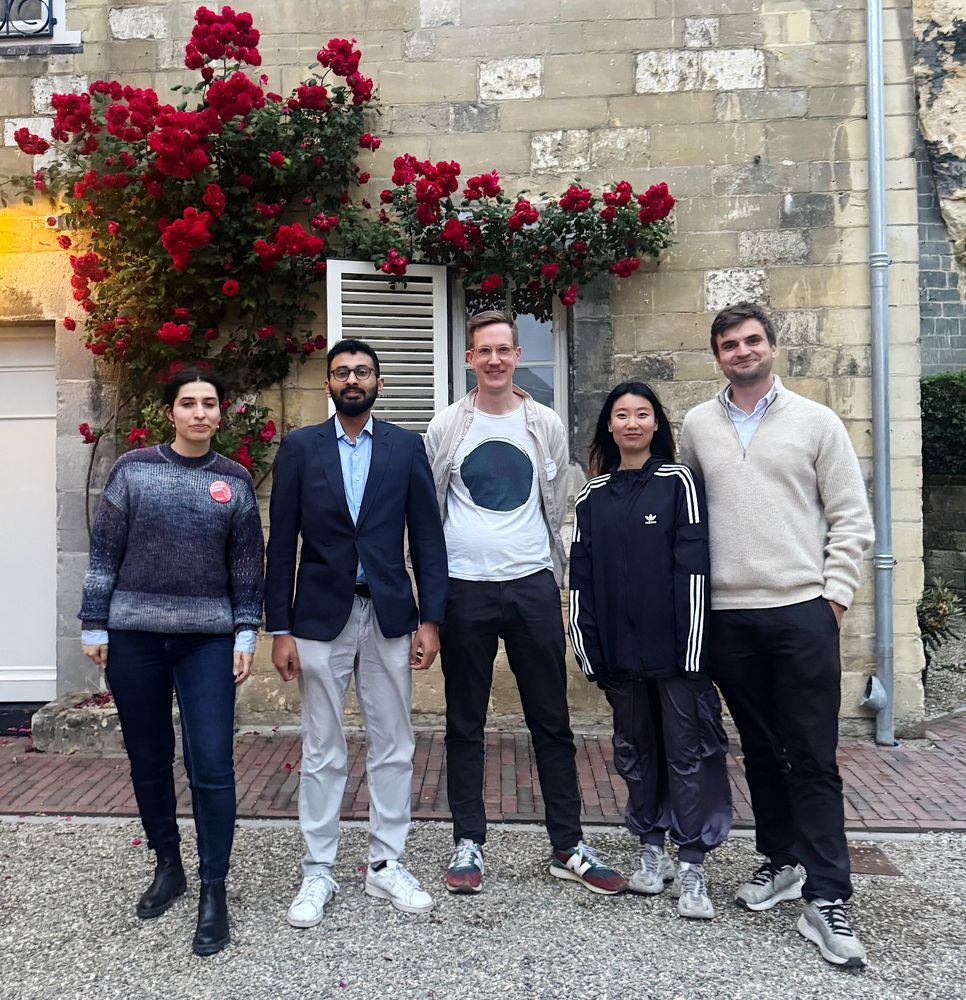
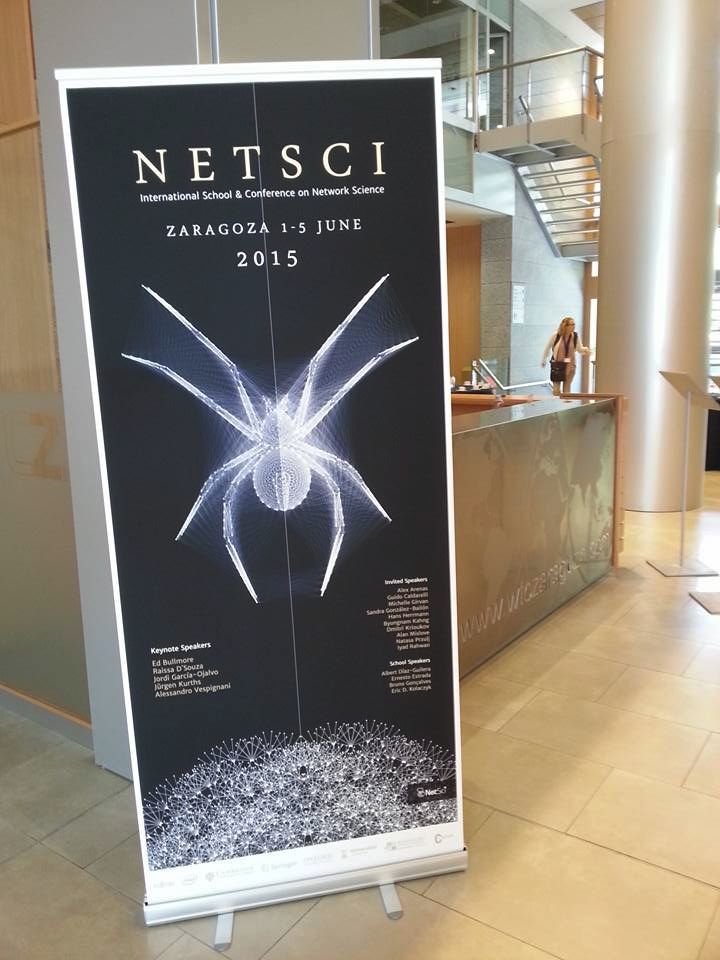



 06.06.2025 14:53 — 👍 2 🔁 1 💬 1 📌 0
06.06.2025 14:53 — 👍 2 🔁 1 💬 1 📌 0
